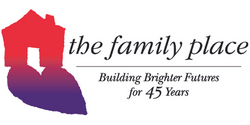 One in three Texans will experience domestic violence in their life, which unfortunately means the odds are high that someone you are close to — a friend, a coworker, or even a relative — is facing abuse in their home. For many reasons, it’s hard for victims to acknowledge they are being abused, especially when the abuser is supposed to be a loved one. Equally as challenging is determining the right approach and timing to help someone in an abusive situation.
One in three Texans will experience domestic violence in their life, which unfortunately means the odds are high that someone you are close to — a friend, a coworker, or even a relative — is facing abuse in their home. For many reasons, it’s hard for victims to acknowledge they are being abused, especially when the abuser is supposed to be a loved one. Equally as challenging is determining the right approach and timing to help someone in an abusive situation.
Knowing the signs of abuse and how to help can be a critical and sometimes lifesaving step for someone in need. As Teresa, a survivor of domestic violence and former client of The Family Place, said, “What helped me the most was a neighbor who confronted me when she hardly knew me and offered to help whenever I was ready to take the first step.”
How to Identify an Abusive Relationship
There are lots of ways you can tell if something is wrong in a relationship. Are there unexplained injuries or explanations that don’t quite make sense? Do they cancel plans frequently at the last minute for strange reasons or seem consistently afraid of making their partner angry?
The following behaviors are often warning signs of abuse in relationships. Take notice of these behaviors and take them seriously.
Warning Signs of Abuse
- Gets too close, too fast :: There is pressure to be in a serious relationship right away.
- Always has to know whereabouts :: Calls constantly, visits without warning, or is concerned with car mileage or other means of tracking whereabouts.
- Is controlling :: Requires permission to go anywhere or do anything.
- Is Isolating :: Forbids visits with friends or family or attendance at work, church or school functions.
- Blames partner for his/her feelings :: Says “You make me angry” instead of “I am angry.”
- Is cruel to animals :: Is violent toward pets or other animals; mistreats, abuses, or kills them.
- Displays “playful” use of force :: Throws or holds partner down; forces intimacy and doesn’t accept no for an answer.
- Verbally/emotionally assaults :: Constantly says cruel, hurtful things; cursing and name calling; public humiliation.
- Displays sudden mood swings :: Quickly switches from sweet and loving to angry and violent.
- Controls finances :: Makes demands about how to spend money; monitors spending through receipts, bank account or check book.
 How to Help
How to Help
If your friend, relative, or neighbor is in an abusive relationship, you can be an important lifeline. Let them know you care. Gently ask direct questions and give them time to talk. Listen without judging, and don’t rush into providing solutions.
Keep in mind that victims of abuse believe their abuser’s negative messages — leaving them to feel ashamed, inadequate, and afraid of your judgment. Your most important refrain is: “It’s not your fault!” Explain that there’s never an excuse for physical violence in a relationship — not alcohol or drugs, not financial pressures, depression, jealously, not anything.
If your friend remains in the relationship, continue to express your concern for them without judgment. Remember that it takes most victims several tries to leave an abusive relationship.
Make sure they know that help is available at The Family Place, the largest provider of domestic violence services in Texas. The Family Place crisis hotline is available 24/7 at 214-941-1991. On the other end of the line is a caring person with answers and support, whether that be emergency shelter, counseling services, supportive living, and more.
You can also help them prepare a plan for leaving, which includes safely gathering important papers such as birth certificates, passports, health insurance documents, food stamps, photo ID/driver’s license, checkbooks, Social Security cards, immunization records, etc.
Encourage your friend to document the abuse in medical records and to talk to medical professionals about the abuse. Domestic violence is a serious crime, and victims can seek protection from the police and courts by calling 911 and pursuing a protective order.
Above all, it is critical that individuals in abusive situations feel supported and confident transitioning from victim to survivor. Help is always available at The Family Place, where survivors of domestic violence find safety and a path to brighter futures every day.
Watch this video discussion between Emily Youree, CEO of Dallas Moms and Mimi Sterling, CEO of The Family Place:
 For 45 years, The Family Place has served the North Texas community by bringing brighter futures to survivors of family violence. The Family Place is the largest provider of family violence services in Texas, serving nearly 20,000 people in 2022. Programs include a 24-hour hotline, three emergency shelters, including the state’s only shelter for men and their children, a transitional housing program with 25 apartments, three counseling centers, two medical clinics, a dental clinic, Dignity at Work job readiness program, Be Project sexual assault and teen dating violence prevention education for schools, Faith and Liberty’s Place court-ordered supervised visitation, Battering Intervention and Prevention Program court-ordered counseling for abusers, and legal services. All survivor services are free and provided in Spanish and English.
For 45 years, The Family Place has served the North Texas community by bringing brighter futures to survivors of family violence. The Family Place is the largest provider of family violence services in Texas, serving nearly 20,000 people in 2022. Programs include a 24-hour hotline, three emergency shelters, including the state’s only shelter for men and their children, a transitional housing program with 25 apartments, three counseling centers, two medical clinics, a dental clinic, Dignity at Work job readiness program, Be Project sexual assault and teen dating violence prevention education for schools, Faith and Liberty’s Place court-ordered supervised visitation, Battering Intervention and Prevention Program court-ordered counseling for abusers, and legal services. All survivor services are free and provided in Spanish and English.













